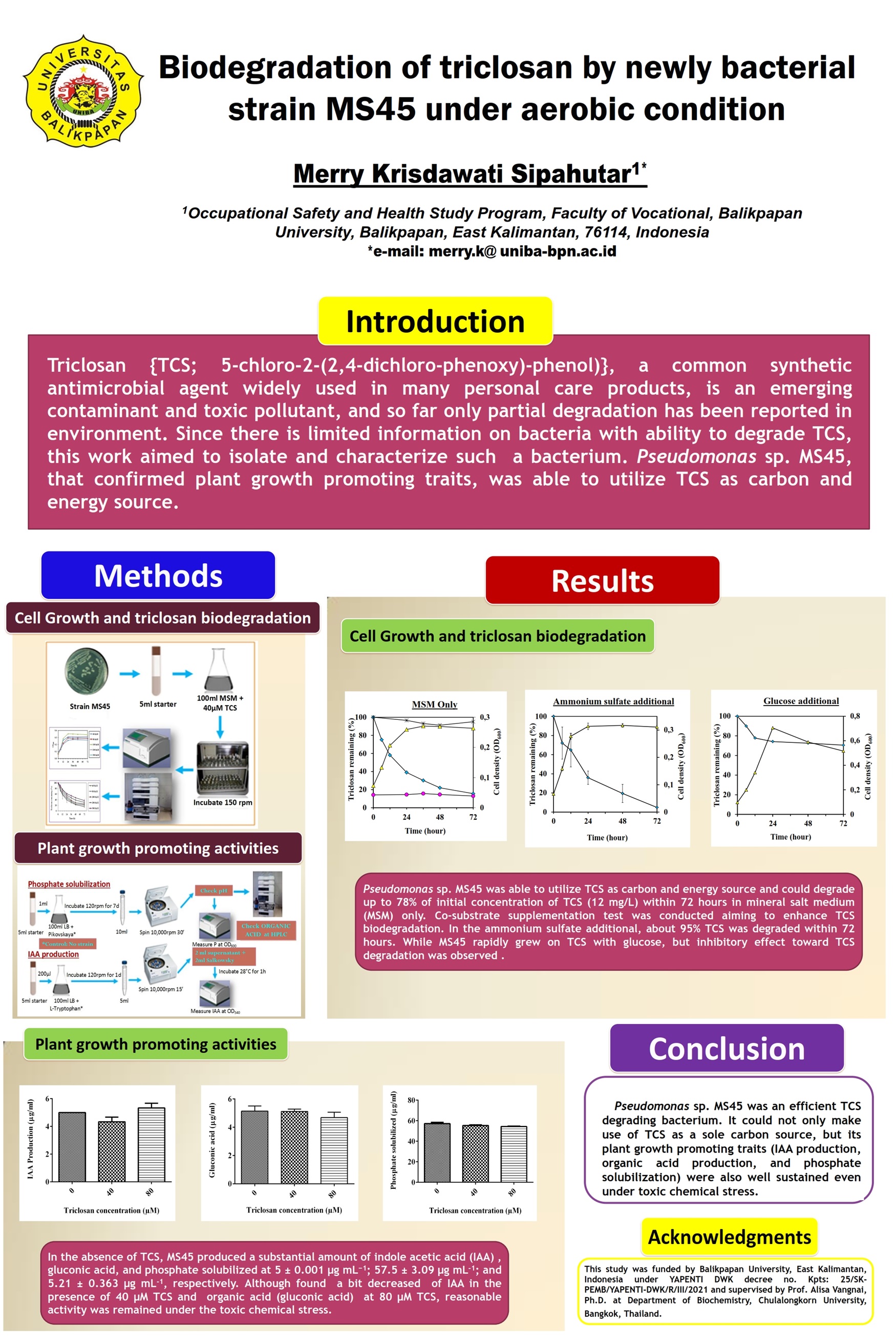Abstract
Triclosan (TSC; 5-chloro-2-(2,4-dichloro-phenoxy)-phenol), a common synthetic antimicrobial agent widely used in many personal care products, is an emerging contaminant and toxic pollutant, and so far only partial degradation has been reported in the environment. Since there is limited information on bacteria with the ability to degrade TCS, this work aimed to isolate and characterize such bacteria. By enrichment of soil using TCS, TCS-degrading bacterial strain, Pseudomonas sp. MS45 (MS45), was isolated. Biodegradation of TCS under aerobic was then studied in batch cultures with the isolated strain. MS45 was able to utilize TCS as the sole carbon and energy source, and up to 78% of the initial concentration of TCS (12 mg/L) within 72 hours. This biodegradation rate is much higher than the previous reports. Co-substrate supplementation test was conducted aiming to enhance TCS biodegradation. While MS45 rapidly grew on TCS with glucose, but inhibitory effect toward TCS degradation was observed. Furthermore, the MS45 strain confirmed plant growth-promoting traits which exhibited the production of indole-3-acetic acid (IAA), organic acids, and solubilization of various sources of inorganic phosphates. This study indicates that strain MS45 may have a potential application for the biomineralization of TCS.


